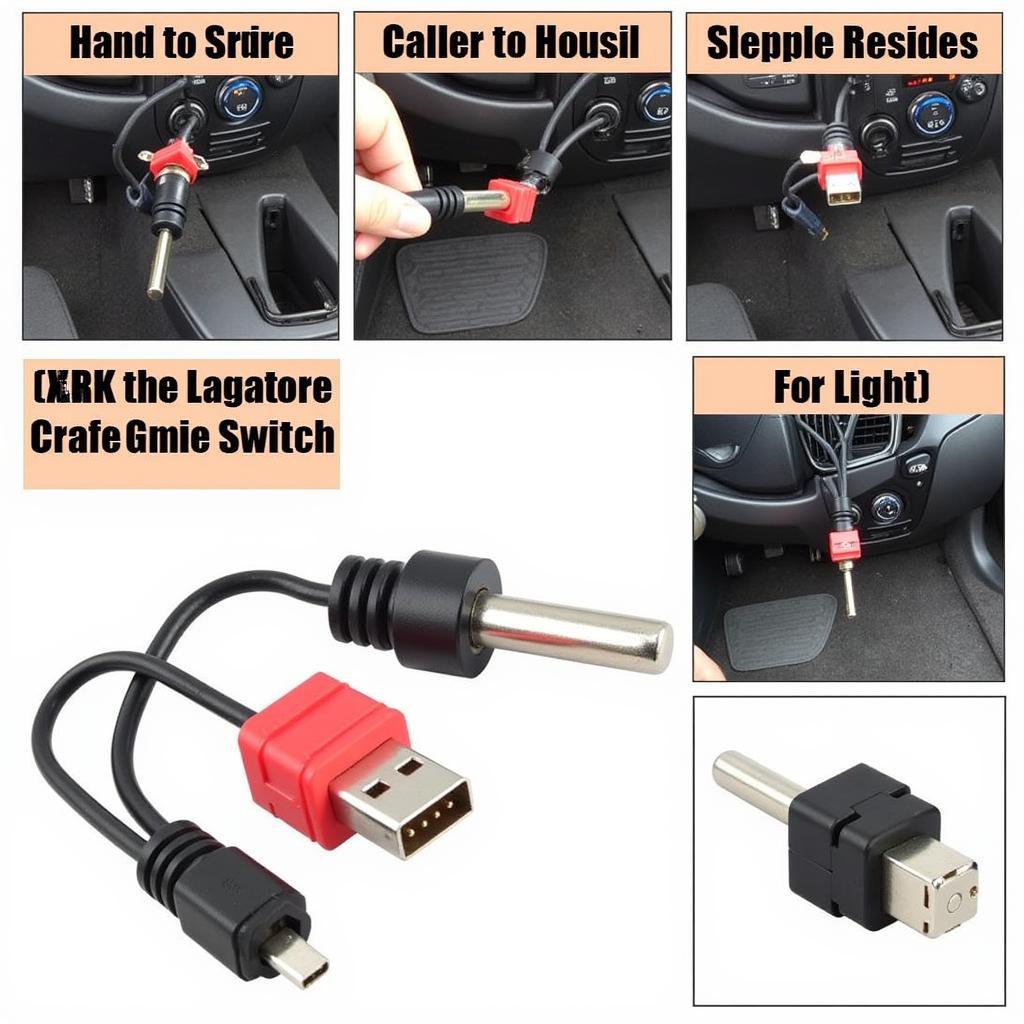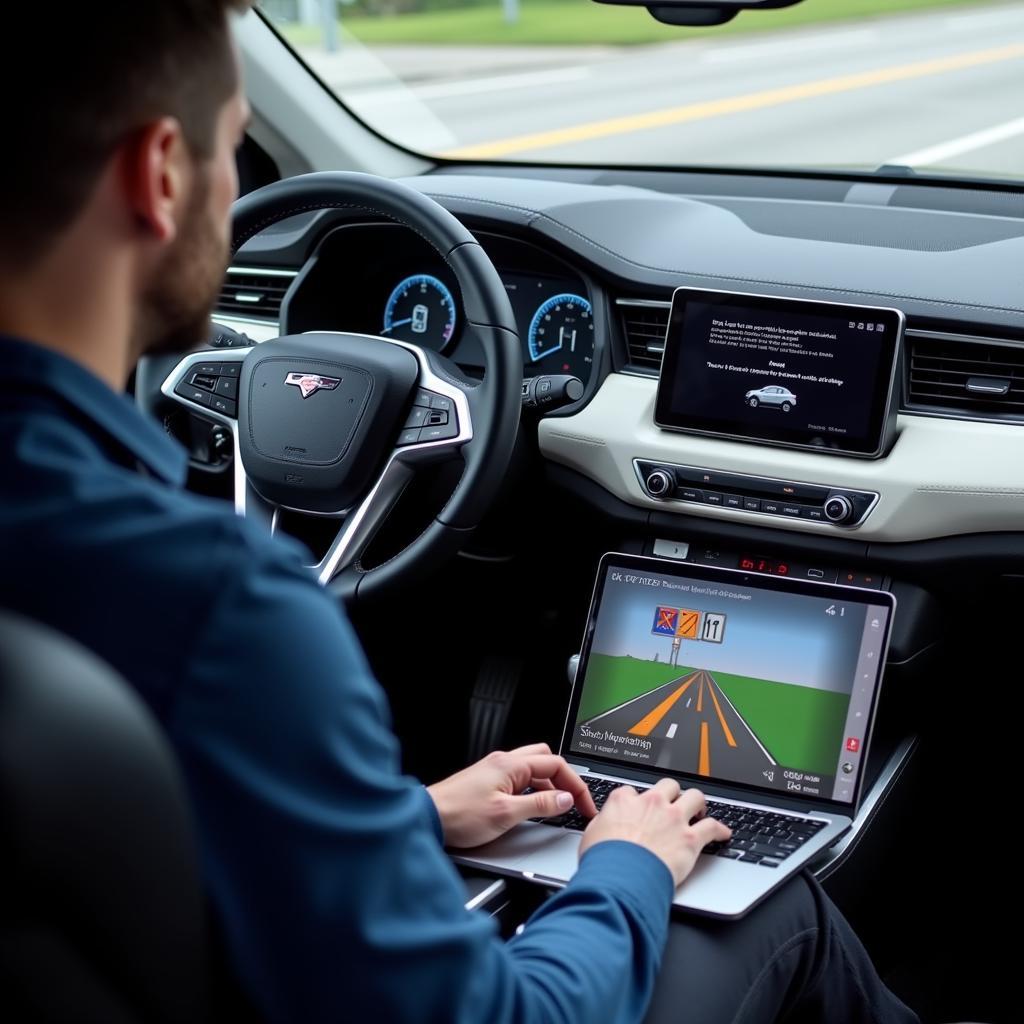If your 2001 Honda’s brake light warning is stubbornly illuminated, you’re in the right place. This comprehensive guide addresses the common causes of a “honda 2001 brake light warning on” and provides practical solutions, from simple checks to more advanced diagnostics.
A glowing brake light warning on your 2001 Honda can signal several issues, ranging from a simple blown bulb to more complex problems with the braking system. Understanding the potential causes is crucial for effective troubleshooting. For some models, you might find helpful information at 2001 honda accord brake lamp warning light.
Common Causes of a Brake Light Warning
Several factors can trigger the brake light warning in a 2001 Honda. These include:
- Burnt-out brake light bulbs: This is the most frequent culprit. A quick visual inspection can confirm this.
- Faulty brake light switch: This switch, located under the brake pedal, can wear out or malfunction, preventing the lights from activating.
- Low brake fluid: Insufficient brake fluid can trigger the warning light, indicating a potential leak or worn brake pads.
- Wiring issues: Damaged or corroded wires can disrupt the circuit and illuminate the warning light.
- ABS module problems: While less common, issues with the Anti-lock Braking System (ABS) module can also trigger the warning light.
For specific Honda Accord models, check out this resource: 2001 honda accord brake warning light.
Troubleshooting Your Honda 2001 Brake Light Warning
Here’s a step-by-step guide to diagnose and resolve the issue:
- Check the brake light bulbs: Inspect all brake lights, including the high-mount stop lamp. Replace any burnt-out bulbs.
- Inspect the brake fluid level: Open the brake fluid reservoir (usually located near the firewall) and check the fluid level. If it’s low, top it off with the correct type of brake fluid. However, persistently low fluid indicates a leak that requires professional attention.
- Test the brake light switch: Locate the switch under the brake pedal. With the ignition on, depress the brake pedal and check if the brake lights illuminate. If not, the switch may need replacement.
- Inspect the wiring: Carefully examine the wiring harness connected to the brake lights and the brake light switch for any signs of damage, corrosion, or loose connections. Repair or replace any faulty wiring.
Advanced Diagnostics and Solutions
If the basic troubleshooting steps don’t resolve the problem, more advanced diagnostics may be necessary. This can involve using a diagnostic scanner to read error codes from the ABS module or other systems. You can find more information for specific models like the Honda Civic at 2001 honda civic brake warning light.
“Intermittent brake light warnings often point to a failing brake light switch or a loose connection,” says John Davis, a veteran automotive electrical engineer specializing in Honda diagnostics. “A thorough inspection of the wiring harness is crucial.”
Why is my 2001 Honda CRV brake warning light on?
The brake warning light in a 2001 Honda CRV, like other Honda models, can illuminate for several reasons, including low brake fluid, worn brake pads, a faulty brake light switch, or problems with the ABS system. You can learn more about this specific model here: honda crv 2001 brake warning light.
“Never ignore a persistent brake light warning,” warns Sarah Miller, a certified automotive technician with over 15 years of experience. “It’s a crucial safety indicator that shouldn’t be overlooked.”
Conclusion
Addressing a “honda 2001 brake light warning on” promptly is essential for your safety. By following the troubleshooting steps outlined in this guide, you can often identify and fix the issue yourself. However, if the problem persists, seeking professional assistance is always recommended. See more information at brake lamp warning light honda accord 2001.
 Replacing the Brake Light Switch on a 2001 Honda
Replacing the Brake Light Switch on a 2001 Honda
FAQ
- Can I drive with the brake light warning on? While you might be able to drive, it’s highly discouraged. It indicates a potential problem with your braking system, putting you and others at risk.
- How much does it cost to replace a brake light switch? The cost varies depending on the model and labor charges but typically ranges between $50 and $150.
- How often should I check my brake fluid level? It’s good practice to check your brake fluid level at least once a month.
- What type of brake fluid should I use in my 2001 Honda? Consult your owner’s manual for the recommended brake fluid type. Using the incorrect type can damage the braking system.
- Can a faulty ABS sensor cause the brake light warning to come on? Yes, problems with the ABS system, including a faulty sensor, can trigger the brake light warning.
- Is it difficult to replace a brake light bulb myself? Replacing a brake light bulb is usually a simple task that can be done with basic tools.
- Where can I find reliable information about my 2001 Honda’s braking system? Your owner’s manual is the best source of information for your specific Honda model.

